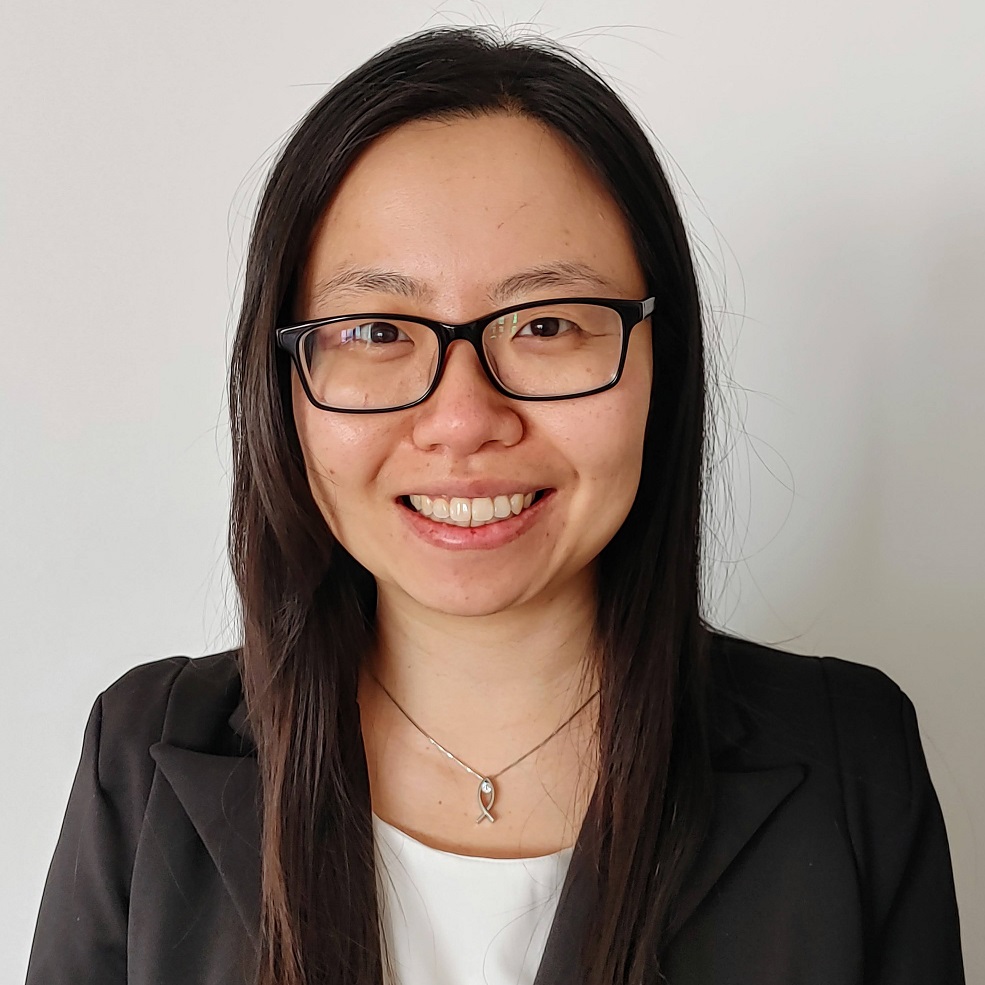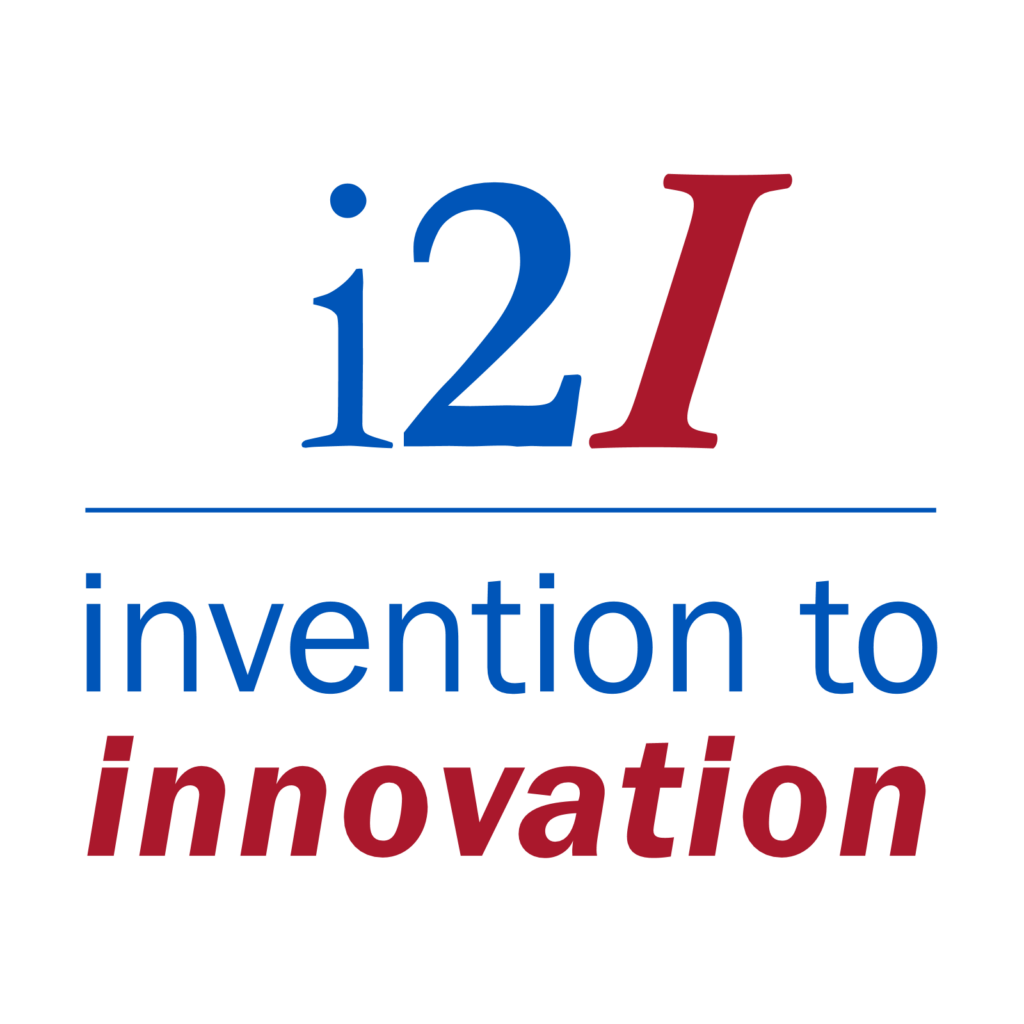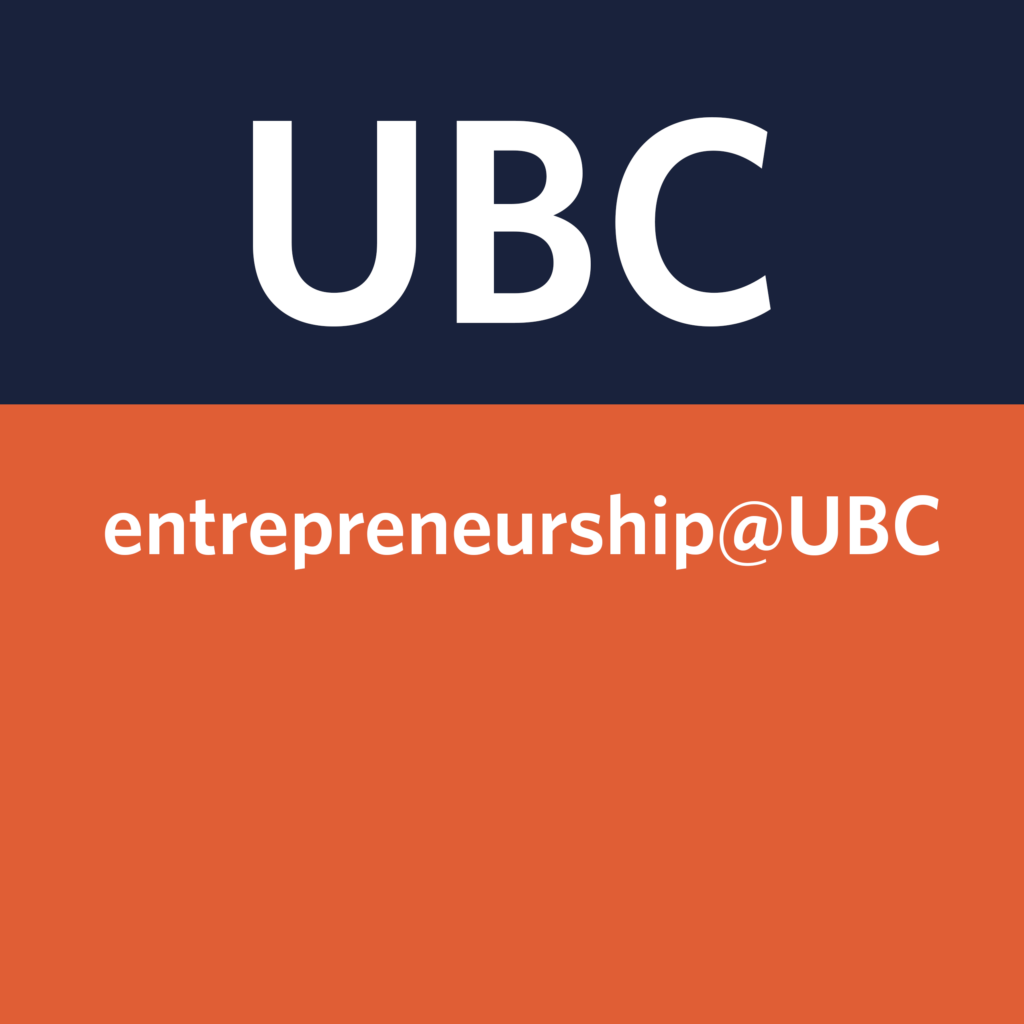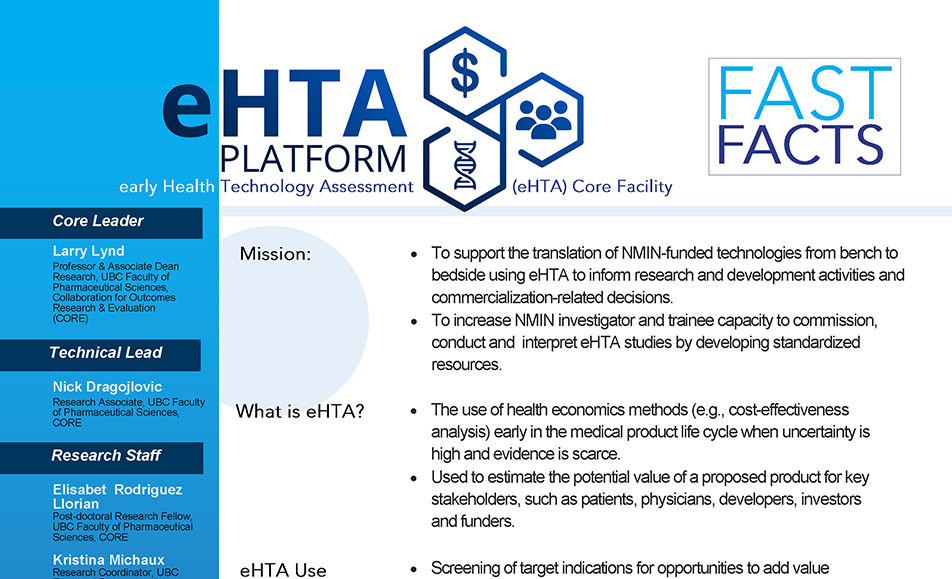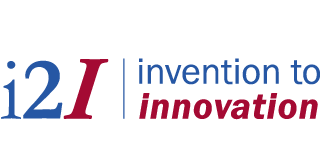NMIN
EVENTS
Capacity-building Webinars
Ongoing
Up-coming webinars
NMIN
Sorry to say...
No more webinars are being planned…
Resources (slides in PDF, video recordings) are available for most past capacity building webinars.
NMIN
PAST WEBINARS
2023-2024
2022
2021
2020
NMIN
Canadian Life Sciences Sector Ecosystem Employment Opportunities
NMIN Capacity-building Webinar
Tuesday, 7 May 2024
9:00 – 10:30 am (PT) | 12:00 am – 1:30 pm (ET)
Opportunities in BC’s Life Sciences sector
British Columbia is home to Canada’s fastest growing life sciences sector. A healthy labour market will be critical to sustaining its growth and maintaining its status as a world-class life sciences hub. Over the next five years, the sector is expected to face a widening talent supply gap, projected to increase to 5,500 by the end of 2027. This spells opportunity! Learn all about the opportunities, current and future, in this dynamic sector, as detailed in the recent British Columbia Life Sciences Labour Market Intelligence Report.Wendy Hurlburt is the President and CEO of Life Sciences BC, holding a critical leadership role in B.C.’s dynamic life sciences ecosystem. She cultivates relationships between local SMEs, global partners, educational institutions and government and elevates the sector as a highly regarded spokesperson in key markets worldwide. Previously, Wendy held leadership roles with Johnson & Johnson; was Financial Officer for the Heart and Stroke Foundation of Ontario and Lexmark International; and chaired the Finance and Audit Committee for adMare Bioinnovations. She holds an MBA from Queen’s University, a BA from Western University and a Strategic Leadership Certificate from UBC’s Sauder School of Business.
Portrait of a vibrant ecosystem – Quebec’s latest data on its life sciences sector
A brief overview of Quebec’s ecosystem in relation to employment opportunities and a comparison of key performance indicators with select North American jurisdictions.Frank Béraud has over 25 years of experience in the life sciences sector, mainly in business development, and a background in sales and marketing within multinationals in the field of clinical diagnostics. Currently, he is CEO of the biotechnology SME Montréal InVivo. He also works as a consultant within the industry and at a technology transfer organization, and chairs the board of directors of the charitable organization Cancer Computer, which aims to provide leading researchers with the computing power of refurbished supercomputers. Before joining Montréal InVivo, Mr. Béraud managed the policies and strategic development of an industrial association in the life sciences sector.

Wendy Hurlburt
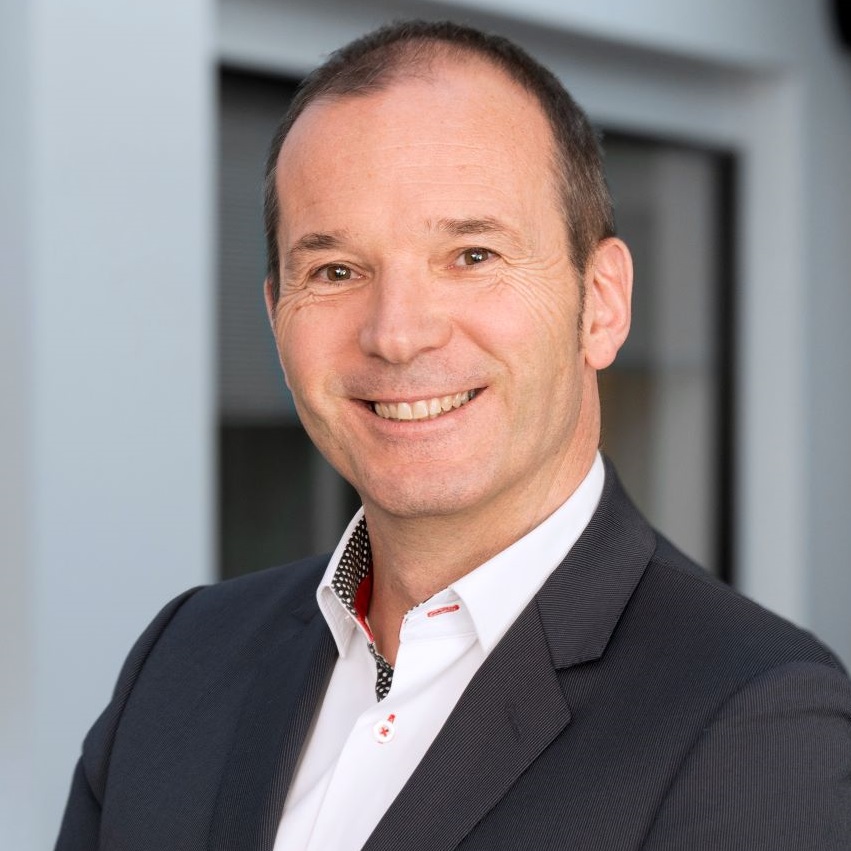
Frank Béraud
NMIN
Effectively Communicating the Impact of your Research
NMIN Capacity-building Webinar
Tuesday, 23 April 2024
9:00 – 10:00 am (PT) | 12:00 am – 1:00 pm (ET)
The techniques shared in this presentation will empower researchers to articulate the scientific value and practical relevance of their research and innovative projects to diverse audiences.
Clay Braziller, B.Eng, MBA, has 25 years of experience in Strategic Planning, revenue and partnership development, and marketing. Currently he is the manager of strategic partnerships in the Faculty of Science at Simon Fraser University (SFU), an Executive in Residence with Kootney Association of Technology and Foresight Clean Technology Accelerator, and a Visiting Lecturer on Market Identification and Assessment with the Beedie School of Business at SFU.
Janis Kan, PhD, is a co-founder of Dynamiris and a postdoctoral fellow at the Centre for Neuroscience Studies at Queen’s University, where she is leading the translation of clinical eye-tracking research in the lab into a practical tool to aid in the detection of neurological disorders in the clinic. She holds a PhD in Neuroscience from Queen’s and has over 15 years of experience using eye-movements and neurophysiology to study the brain. Janis previously worked as a lab manager at the Shanghai Institutes for Biological Sciences, where she built a neurophysiology lab from scratch, and trained staff and students.
Rahul Singh, PhD, is a biotech professional serving B.C.’s research and innovation ecosystem for over 15 years. He works closely with stakeholders and partners from industry, academic, and government organizations representing BC’s key economic sectors, including agriculture, agri-food, forestry, and health to advance the translation of research and innovation into actionable and impactful community-centric outcomes. Dr. Singh has a PhD in Microbiology from the University of Manitoba, a graduate certificate in science and technology commercialization from the Beedie School of Business at SFU, and a mini-MBA from the Sauder School of Business at UBC.
Organized in collaboration with the invention to Innovation (i2I) program of the Beedie School of Business at Simon Fraser University
NMIN
Early-stage IP in rare diseases:
Setting the stage for growth
NMIN Capacity-building Webinar
Wednesday, 31 May 2023
12:00 – 1:00 pm (PDT) | 3:00 – 4:00 pm (EDT)
Rare diseases can provide incredibly valuable insights into the hows and whys of biology. However, by definition, rare diseases address small markets and, in “the business of science,” companies typically seek to develop products with big markets. So does this exclude commercialization in the area of rare diseases?
Clearly not—many rare diseases are the focus of science-based businesses. The key is Intellectual Property (IP): How can you make it strong and use it well?
In this webinar, Dr. Cynthia Shippam (NRC-IRAP) shares some key learnings from her more than 20 year’s experience in the field, regarding how to secure the commercial potential of early-stage IP in the rare disease space.
Dr. Cynthia Shippam is an Industry Technical Advisor (ITA) with the National Research Council’s Industrial Research Assistance Program (NRC-IRAP). NRC-IRAP works with Canadian companies to support growth through innovation. Dr. Shippam brings to her role as an ITA more than 20 years’ experience in research, technology transfer, commercialization and intellectual property protection in large and small firms. She has developed and managed intellectual property in a variety of industries, both in private practice and in-house. Her academic and professional experience (PhD, MBA, Patent Agent) provides her with a broad technical background in life sciences, including: research in agriculture and infectious disease models; assessment, protection and commercialization of novel chemical entities; bioinformatics; assay development; and medical devices.
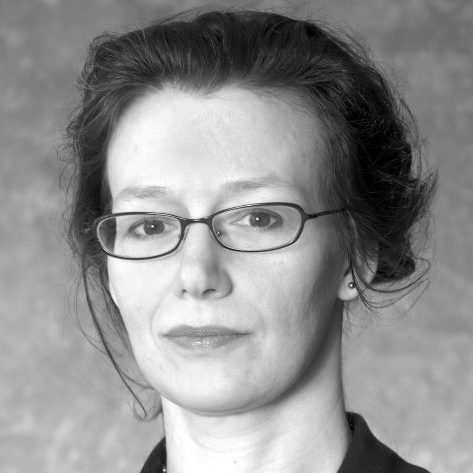
Dr. Cynthia Shippam
NMIN
BUSINESS OF SCIENCE: Transferable skills that straddle academia, entrepreneurship & industry
NMIN Capacity-building Webinar
Thursday, 11 May 2023
11:00 am – 12:00 pm (PDT) | 2:00 – 3:00 pm (EDT)
The federal government recently announced investments of more than $1-billion into world-class research, graduate student training, and post-doctoral opportunities. But of the highly educated people working on transformational research who may benefit from this funding, only about 20% (as a generous estimate) will secure tenure track positions in academia.
In theory, many of these researchers could instead potentially increase the innovative capacity of Canadian organizations or businesses. However, in practice many lack the transferable skills needed to thrive in non-academic environments.
To succeed equally well in academia, entrepreneurship or industry, and to be able to create connections between these different realms of endeavour, researchers need to be equipped with various essential transferable skills.
The presenters in this webinar draw on the foundations and outcomes of the award-winning Mitacs invention to Innovation (i2I) Skills Training Program to identify key skills and how they can be applied along these interconnected career pathways.
Dr. Sarah Lubik is an award-winning educator, entrepreneur, researcher and intrapreneur. She is the National Academic Director for the invention to Innovation (i2I) programs, including the Mitacs i2I Skills Training. She is also the Academic and Executive Director of the Charles Chang Institute for Entrepreneurship and Simon Fraser University (SFU)’s first Director of Entrepreneurship. She has experience coordinating pan-European startup support programs focusing on key areas such as coaching, funding and clusters, is a certified expert business coach and was the co-founder of a high-tech startup: Lungfish Dive Systems. Sarah has been named one of Business in Vancouver’s Top 40 under 40 and an Innovation Leader by the Government of Canada in 2016 and 2018. She serves on the boards of PowerPlay Young Entrepreneurs and New Ventures BC. Sarah holds a BBA (honours) from SFU, and a masters and PhD from the University of Cambridge focusing on the commercialization of university technologies. Her research interests focus on science and tech commercialization, innovation ecosystems, business models, innovation policy and the entrepreneurial mindset. Her work has been featured in journals such as Long Range Planning, R&D Management and Innovation Management: Policy and Practice.
Dr. Azadeh (Azi) Goudarzi is a highly interdisciplinary entrepreneur and scientist, trained in Management of Technology MBA (Simon Fraser University) and holds a PhD from University of British Columbia. She has over 14 years professional experience, including 4 years in the pharmaceutical industry (worked on GMP manufacturing/contributed to the CMC section of an IND filing for US FDA) and 4 years as a CEO/co-founder. Currently Dr Goudarzi is the Director of Business Development and Innovation in Integrated Nanotherapeutics (INT), a UBC spin out from Prof. Pieter Cullis lab. INT focuses on immune tolerance therapeutics, using mRNA to express autoantigen, enabled by novel proprietary multi-cargo Lipid Nanoparticles (LNPs) technology. Dr. Goudarzi directs INT’s business strategy, innovation triage and partnering activities.
Organized in collaboration with the invention to Innovation (i2I) program of the Beedie School of Business at Simon Fraser University
NMIN
Target Product Profile (TPP) Development Overview & Best Practices
NMIN Capacity-building Webinar
Friday, March 17, 2023
12:00 – 1:00 pm (PDT) | 3:00 – 4:00 pm (EDT)
A Target Product Profile (TPP) is a living document that leverages a multi-disciplinary approach to drive more robust product development. This session will give attendees an overview of how to put together an effective TPP for their for their prospective commercial/therapeutic products.
Organized in collaboration with entrepreneurship@UBC
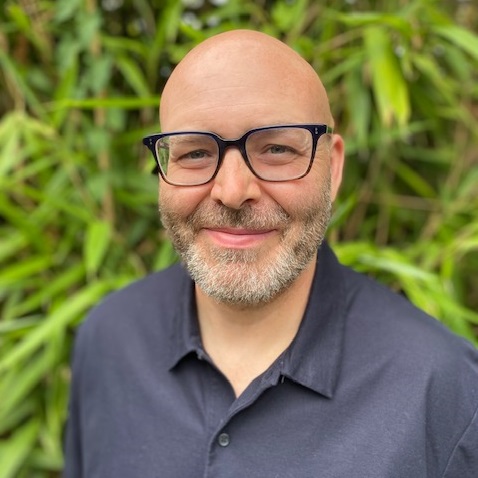
Jonathon Jafari
Jonathon Jafari is Lead Entrepreneur in Residence for the Human Health Venture Studio of entrepreneurship@UBC. He has over 20 years’ experience in biotech strategic marketing, business development and venture creation. He played a prominent role in the creation and launch of multiple startups including Abdera, Kairos (Zymeworks), Sepset, and Zucara while at adMare Bioinnovations. He has worked in business development and strategic marketing at early-stage startups, publicly traded biotech companies (QLT Inc.) as well as multi-national pharmaceutical companies including Novartis and Eli Lilly Inc. He is the co-founder and Chief Business Officer of Mesintel Therapeutics, a UBC spin-out. Jonathon has a BSC and MBA from Indiana University and a MSC in Biotechnology from Johns Hopkins University.
NMIN
Innovation Playbook for Academic Entrepreneurs
NMIN Capacity-building Webinar
Tuesday, February 21, 2023
10:00 – 11:00 am (PST) | 1:00 – 2:00 pm (EST)
This session familiarizes the viewer with the entrepreneurship journey, by which one brings meaningful scientific discoveries to patients and partners. The presenter shares relevant real-world case studies and personal insights.
Organized in collaboration with entrepreneurship@UBC

Jonathon Jafari
Jonathon Jafari has over 20 years’ experience in biotech strategic marketing, business development and venture creation. He played a prominent role in the creation and launch of multiple startups including Abdera, Kairos (Zymeworks), Sepset, and Zucara while at adMare Bioinnovations. He has worked in business development and strategic marketing at early-stage startups, publicly traded biotech companies (QLT inc) as well as multi-national pharmaceutical companies including Novartis and Eli Lilly Inc. He is the co-founder and Chief Business Officer of Mesintel Therapeutics, a UBC spin-out. Jonathon has a BSC and MBA from Indiana University and a MSC in Biotechnology from Johns Hopkins University.
NMIN
Using value assessment to inform R&D priorities:
An introduction to early health technology assessment (eHTA)
NMIN Webinar Series
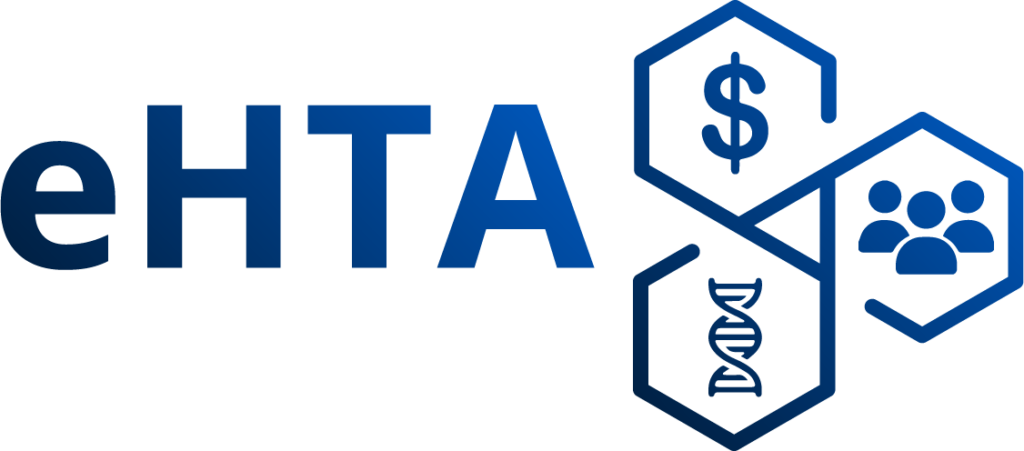
In a competitive landscape where resources are limited, quantifying the potential value of a new health technology for key stakeholders/potential customers at an early stage can reduce commercialization risks.
This three-part webinar series introduced attendees to the concepts of health technology assessment (HTA) and early health technology assessment (eHTA), and discussed how assessing value can inform decisions when translating an invention into a commercially viable product.
Through this webinar series, participants gain a broad understanding of:
- A technology’s lifecycle and why technologies can fail to be widely adopted
- The key components of health technology assessment, economic evaluation, and budget impact analysis, and when to use them
- Early health technology assessment and how it can be used to inform the development and maximize the value proposition of a new health technology.
SESSIONS (details and videos for each follow below):
- Beyond safety and efficacy: Why successful commercialization does not depend only on clinical trials data
- Know your payers: Will insurers pay for your health technology?
- Position your health technology for success: How Early Health Technology Assessment can quantify the potential value and uptake of your novel technology
NOTE: These three sessions build on one another, so to benefit from the series it would be best to attend all three. If you are unable to attend any individual session, you will be encouraged to view the recording of that session before attending the next.
NMIN HQP will receive double credits toward their Advanced Training Certification (ATC) for attendance of each webinar in this series, for a potential total of 6 credits.
Session 1 - Beyond safety and efficacy:
Why successful commercialization does not depend only on clinical trials data
Wednesday, October 5, 2022
11:00 am – 12:00 pm (PDT) | 2:00 – 3:00 pm (EDT)
Vyxeos, Glybera, Exubera and Praluent are just a few examples of drugs that received market approval but had limited adoption and did not meet sales expectations. Unfortunately, developing a safe and effective health technology does not guarantee that patients will want it, that physicians will use it, or that payers will pay for it.
This webinar will use a series of examples to review the many factors that may affect the adoption of a health technology throughout its lifecycle.
By the end of the webinar, participants will be familiar with the major pitfalls in the commercialization of new health technologies and understand how to mitigate these risks by focusing on the value they deliver to key players in the healthcare ecosystem.
Session 2 - Know your payers:
Will insurers pay for your health technology?
Wednesday, October 26, 2022
11:00 am – 12:00 pm (PDT) | 2:00 – 3:00 pm (EDT)
Understanding how private insurance companies and publicly funded health systems decide which health technologies to pay for and how much they are willing to pay for them is a critical part of a successful commercialization strategy. Health Technology Assessment (or HTA) is an evaluation process that provides payers with recommendations on when, and at what price, a technology should be made available to a given patient population.
This webinar will provide an overview of HTA, including explanations of key concepts like economic evaluation, cost-effectiveness analysis, incremental cost-effectiveness ratios and quality-adjusted life years.
Following the webinar, participants will be able to explain how and why health systems use HTA, describe the assumptions and evidence necessary to quantify the value-for-money of a new health technology, and define a set of key HTA concepts.
Session 3 - Position your health technology for success:
How Early Health Technology Assessment can quantify the potential value and uptake of your novel technology
Tuesday, December 13, 2022
1:00 – 2:00 pm (PST) | 4:00 – 5:00 pm (EST)
It is never too early to plan for research and development activities and identify the critical milestones a technology will need to achieve for successful commercialization.
This webinar will describe how early health technology assessment (eHTA) uses existing evidence to inform which disease and patient population to target, where to position a technology in the current care pathway, and the incremental effectiveness a technology needs to achieve to benefit patients at a given price.
By the end of this webinar, participants will understand the rationale, the steps and the data requirements of an eHTA.
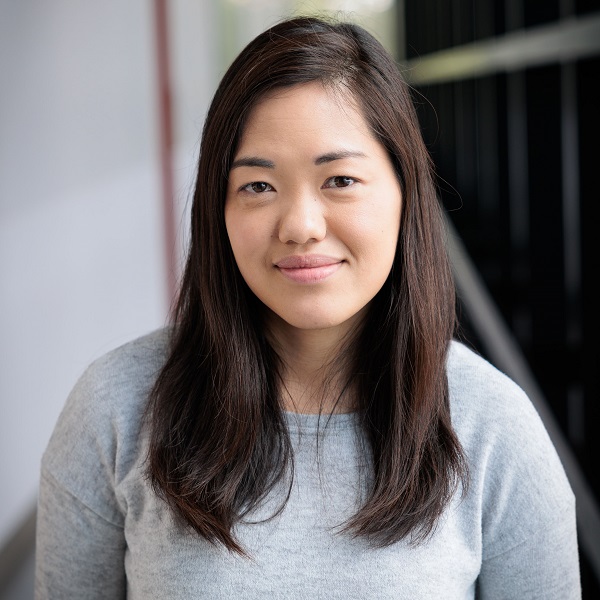
Fernanda Nagase
NMIN
Ensuring Research Security in the Canadian Research Landscape:
Balancing the benefits of international partnership with potential risks
NMIN Capacity-building Webinar
Monday, September 12, 2022
10:00 – 11:15 am (PDT) | 1:00 – 2:15 pm (EDT)
Research security has become increasingly high profile over the last decade due to the potential risks to national security and foreign interference. Espionage and foreign interference activities targeted at Canada’s world-class research are increasing, and the Government of Canada encourages all members of the research community to take extra precautions to protect the security of Canadian research.
Our two speakers will discuss the management of potential risks of foreign partnerships while still enabling collaborative research opportunities, Dr. Spyke Keiser as the Chief of Research Security Strategy and Policy at the National Science Foundation, and Dr. Fast as the Director of Partnerships and Innovation at the University of Manitoba.
Presentations
Maintaining International Collaboration While Focusing on Research Security
Dr. Rebecca Spyke Keiser, Chief of Research Security Strategy and Policy at the National Science Foundation (NSF), will address principles of research integrity and security. She will share relevant case studies and discuss how to distinguish between responsible internationalization and internationalization involving research security issues.Practicalities of Assessing Risk
Dr. Darren Fast, Director, Partnerships & Innovation at the University of Manitoba will address some of the practical issues around determining the risks of collaborating with partners. He will use examples to demonstrate some of the challenges and best practices of assessing security risk in the Canadian environment.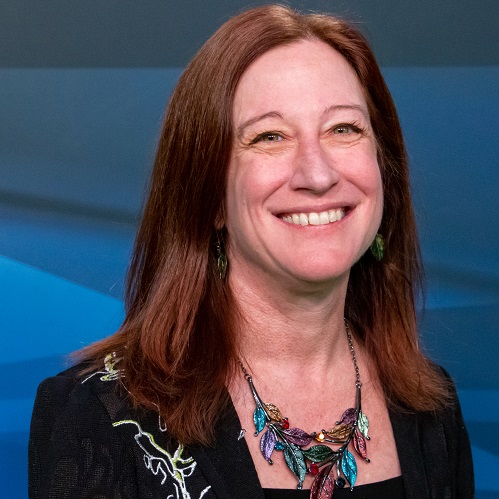
Rebecca Spyke Keiser
Rebecca Spyke Keiser, PhD, is the first Chief of Research Security Strategy and Policy (CORSSP) at the National Science Foundation (NSF)—a position established in March 2020 to ensure the security of federally funded research while maintaining open international collaboration. She advises the NSF director on policy and coordinates with other federal agencies and the White House. Previously, she was: head of the Office of International Science & Engineering (OISE) at NSF; a special advisor to the National Aeronautics and Space Administration (NASA) administrator; and an assistant to the director for international relations at the White House Office of Science and Technology Policy.
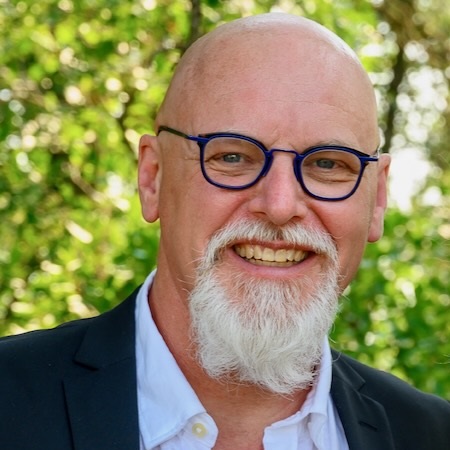
Darren Fast
Darren Fast, PhD, Dr. Fast joined the University of Manitoba in 2012. He leads a team that is responsible for assessing and moving research-based technologies into the private sector as well as facilitating collaborative research partnerships with industry partners. Previously, Darren was Chair of the Canadian Committee of AUTM; the Senior Intellectual Property Advisor at the Public Health Agency of Canada; President of Solalta Advisors, providing market and business development services for early-stage technology-based companies; Chief Technology Officer for the Western Life Sciences Venture Fund, where he created new companies based on licensed technologies; and manager, Product Planning and Development, at Viventia Biotech, where he was responsible for the development of several human therapeutic antibody projects. He has a Ph.D. in biochemistry from the University of Alberta and a M.Sc. in chemistry from the University of Manitoba.
NMIN
Pitching your innovation: Pro tips for scientists
NMIN Capacity-building Webinar
Wednesday, May 18, 2022
10:00 – 11:00 am (PDT) | 1:00 – 2:00 pm (EDT)
Having a positive impact on society is the dream of many scientists. With a well-honed, understandable, and compelling pitch for your innovation, you can open doors to the partners who can help make those dreams come true.
Clay Braziller, Visiting Lecturer at the Beedie School of Business at Simon Fraser University (SFU), discusses how to communicate the potential impact of your innovation, how to bust the three mindsets that hold scientists back, and how to work through the seven elements of a simple pitch.
This webinar will equally benefit the scientist who wants to move an innovation from the lab to the market, the institutional researcher looking for management support to continue their work, and the graduate looking for a new position.
This webinar is one in a series provided to NMIN by the Beedie School of Business and the Invention to Innovation (i2I) Program at SFU. Past webinars in the series include:

Clay Braziller
Clay Braziller, B.Eng, MBA, has 25 years of experience in Strategic Planning, revenue and partnership development, and marketing. Currently he is the manager of strategic partnerships in the Faculty of Science at Simon Fraser University (SFU), an Executive in Residence with Kootney Association of Technology and Foresight Clean Technology Accelerator, and a Visiting Lecturer on Market Identification and Assessment with the Beedie School of Business at SFU.
NMIN
The role of validation & retraction in upholding scientific integrity – How science gets corrected
NMIN Scientific Integrity Webinar
A video recording of this webinar is available
for viewing by NMIN Network participants.
To access the video, please contact: info@nanomedicines.ca
Thursday, April 7, 2022
9:00 – 10:00 pm (PDT) | 12:00 – 1:00 pm (EDT)
Rapid publication of results—particularly on pre-print servers—has grown dramatically during the COVID-19 pandemic, and has forced researchers, health care professionals, and journalists to grapple with the concept of reliable and actionable information.
The pandemic has given rise to more than 200 retractions at the time of this writing. Is that cause for concern?
My lens for this talk will be more than a decade of experience reporting on retractions for Retraction Watch, including creating the world’s most comprehensive database of retractions, with more than 32,000 and counting.

Dr. Ivan Oransky
Co-Founder, Retraction Watch
Dr. Ivan Oransky, MD, is co-founder of Retraction Watch, editor in chief of Spectrum, and distinguished writer in residence at New York University’s Arthur Carter Journalism Institute. He also serves as president of the Association of Health Care Journalists.
Ivan previously was vice president of editorial at Medscape, global editorial director of MedPage Today, executive editor of Reuters Health, and held editorial positions at Scientific American and The Scientist.
A 2012 TEDMED speaker, he is the recipient of the 2015 John P. McGovern Medal for excellence in biomedical communication from the American Medical Writers Association, and in 2017 was awarded an honorary doctorate in civil laws from The University of the South (Sewanee). In 2019, the judges for the John Maddox Prize, which promotes those who stand up for science in the face of hostility, gave him a commendation for his work at Retraction Watch.
NMIN
NMIN's Core Facilities
How they can help!
Monday, January 10, 2022
12:00 – 1:30 pm (PST) | 3:00 – 4:30 pm (EST)
Resources are available for this webinar:
Videos: NanoCore | PharmaCore | eHTA
Slides: NanoCore | PharmaCore | eHTA
Note: Each slide is linked to the corresponding timepoint in the video.
Representatives of NMIN’s three Core Facilities – NanoCore, PharmaCore and the eHTA – explain how these platforms can benefit NMIN-supported research projects and programs. A Q&A session allowed attendees to discuss how these Core Facilities can facilitate their research and commercialization efforts.
Dr. Karen Chan (Operational Lead) discussed the Translational NanoMedicines Formulation and Characterization Core Facility (NanoCore), which facilitates NMIN’s vision of translating nanomedicines to the clinic by providing state-of-the-art nanoparticle formulations and a standardized nanomedicines characterization service to enable potent therapies that can be readily manufactured.
Dr. Nancy Dos Santos discussed the Preclinical, Scale-up Manufacturing & Project Management Core Facility (PharmaCore), which supports in vitro and in vivo studies as well as scale-up, stability testing and manufacturing needs to help confirm commercial potential.
Dr. Nick Dragojlovic (Technical Lead) discussed the Early Health Technology Assessment platform (eHTA), which supports the translation of NMIN-funded innovations from bench to bedside, and provides education, coaching, and contract research services on the use of eHTA to inform a broad range of R&D and commercialization-related activities and decisions.
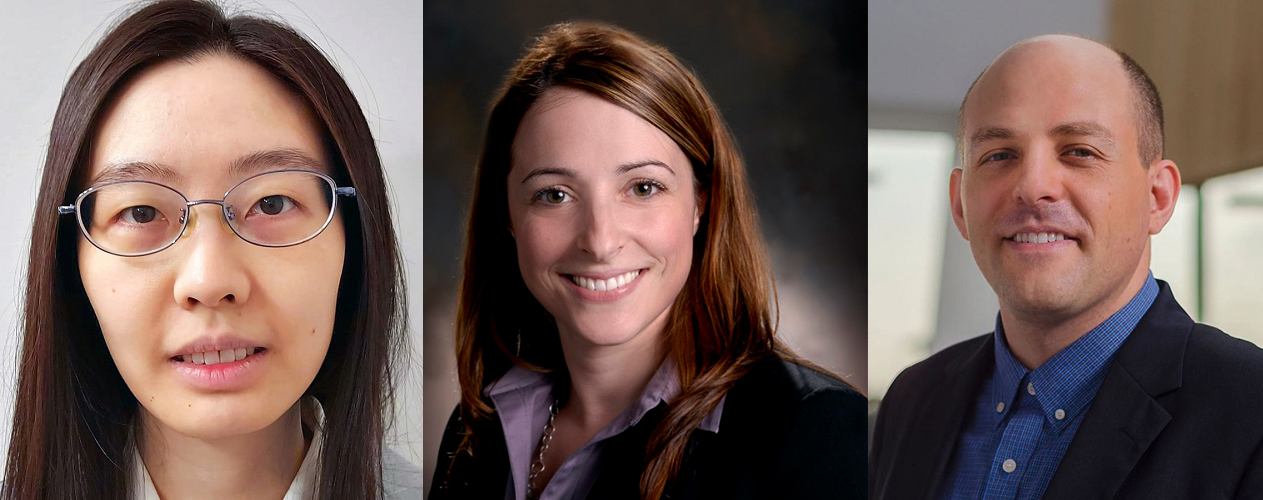
Speakers
Left to Right:
Dr. Karen Chan (NanoCore Operational Lead)
Dr. Nancy Dos Santos (PharmaCore Operational Lead)
Dr. Nick Dragojlovic (eHTA Technical Lead)
NMIN
Mastering Interviewing
NMIN Capacity-building Webinar
Wednesday, December 15, 2021
10:00 – 11:30 am (PST) | 1:00 – 2:30 pm (EST)
Whether you have an upcoming interview or not, it’s important you master the art of
interviewing, especially in a predominantly virtual environment.
How do you ensure that your experience, education, and talents are properly presented during an interview? This webinar will walk through anticipating questions, preparing your success stories, deciphering what the employer is looking for, and making sure the role is a good fit for you.
The webinar will explore:
- Presenting yourself professionally and competently in an increasingly technical and virtual market to showcase your key qualifications.
- Before (preparation), During (action) and After (strategic follow-up).
- Explore STAR principles and how to practically apply these to any interview format: one-to-one, panel, or recorded; in person or virtual.
- How to articulate your value proposition for greatest impact.
- Strategies to beat anxiety and recover quickly from mistakes.

Jennifer Facchin
Certified Career Transition Coach
Jennifer has an extensive background in HR, recruitment, leadership development, employee engagement, OD projects, training and facilitation, business development management, and corporate store management.
A change catalyst, she has spent over 15 years supporting teams in the private sector, while leveraging and maximizing human talent toward effecting culture change and profitable growth.
NMIN
Networking Your Way to a Better Career
NMIN Capacity-building Webinar
Wednesday, December 1, 2021
10:00 – 11:30 am (PST) | 1:00 – 2:30 pm (EST)
Remember when you could walk into an employer’s office, hand in your resume and speak to the hiring manager in person? We have long been living in a virtual environment and our reliance on technology to support our job searches will only continue to increase.
While unadvertised vacancies, i.e. the “hidden job market”, aren’t as common as they once were, good networking practices continue to be critical to maximizing the number and quality of opportunities that we discover and exploit.
The webinar will explore:
- Understanding Why, How and When to network strategically.
- How to best use practical networking tools including: LinkedIn, social media,
conferences, symposia or other events. - Determining your unique value proposition and making your personal brand work.
- Building your own personal “board of directors:” how to ask great questions and
approach possible mentors.

Jennifer Facchin
Certified Career Transition Coach
Jennifer has an extensive background in HR, recruitment, leadership development, employee engagement, OD projects, training and facilitation, business development management, and corporate store management.
A change catalyst, she has spent over 15 years supporting teams in the private sector, while leveraging and maximizing human talent toward effecting culture change and profitable growth.
NMIN
Resumes That Work
NMIN Capacity-building Webinar
Resources are available for this webinar:
Wednesday, November 17, 2021
10:00 – 11:30 am (PST) | 1:00 – 2:30 pm (EST)
You have a resume, but you’re uncertain if it’s giving you the competitive edge that you need to shine above others. In today’s highly competitive job market, it’s critical that all the components of your job search toolkit be compelling.
This webinar will teach you how to critically assess your resume and job application against job postings and how to bring out new, practical stories from career experience to demonstrate that you meet or exceed the position’s requirements.
The webinar will explore:
- Introducing yourself with confidence and promoting your personal brand with a clear and consistent message.
- Highlighting key competencies and tailoring your resume to specific job postings.
- Drafting your cover letter & resume for style, content and keywords.
- Strategies to help you get “screened in” to the interview stage.

Jennifer Facchin
Certified Career Transition Coach
Jennifer has an extensive background in HR, recruitment, leadership development, employee engagement, OD projects, training and facilitation, business development management, and corporate store management.
A change catalyst, she has spent over 15 years supporting teams in the private sector, while leveraging and maximizing human talent toward effecting culture change and profitable growth.
NMIN
Creating Your Narrative
from Invention to Impact
Business Models for NanoMedicine Researchers
A series of online NMIN capacity-building webinars
Powered by the Invention to Innovation program (i2I) and the Charles Chang Institute for Entrepreneurship
Business Models are more than a technical requirement for startups: they present an opportunity to craft a compelling, comprehensive narrative of how to make your vision for impact a reality.
This three-part series, hosted by the Invention 2 Innovation (i2I) program at Simon Fraser University (SFU), will share tools and insights for creating science-based business models that enable researchers to translate their scientific results into real-world impacts.
The three sessions detailed below build upon each other toward cultivating an entrepreneurial mindset among participants and imparting skills to help students, researchers and labs to secure funding or employment and/or to commercialize their innovations.
Session 1: Intro to Business Models
What they are and why scientists need them, too!
Thursday, July 15, 2021
9:00 – 10:00 am (PST) | 12:00 – 1:00 pm (EST)
Speaker: Dr. Jon Thomas, Director, Esposito Family Centre for Innovation & Entrepreneurship, University of the Fraser Valley
 Dr. Jon Thomas is the Director of the Esposito Family Centre for Innovation & Entrepreneurship at the University of the Fraser Valley. He holds the BC Regional Innovation Chair in Canada-India Partnership Development at UFV and is an Associate Professor in Innovation & Entrepreneurship at the School of Business, UFV. He is also a Visiting Associate Professor at SFU’s Beedie School of Business.
Dr. Jon Thomas is the Director of the Esposito Family Centre for Innovation & Entrepreneurship at the University of the Fraser Valley. He holds the BC Regional Innovation Chair in Canada-India Partnership Development at UFV and is an Associate Professor in Innovation & Entrepreneurship at the School of Business, UFV. He is also a Visiting Associate Professor at SFU’s Beedie School of Business.
Dr. Thomas has guided scientists and engineers commercializing their inventions for social impact for many years. He teaches in the Invention to Innovation (i2I) program at Beedie and has taught Managing Technological Innovation in the SFU Management of Technology (MOT) MBA program.
Dr. Thomas holds a Ph.D. in Technology Management & Strategy from IIT Delhi and has been a Mitacs Elevate postdoctoral fellow examining innovation in the nanobiotechnology industry sponsored by SFU and CDRD Ventures Inc. His research has been published in Nature Nanotechnology, Technovation, Journal of Engineering & Technology Management, and the Journal of Cleaner Production, among others. He is regularly invited to speak on innovation and entrepreneurship topics and is keenly interested in the pre-formation and early post-formation stages of venture emergence, particularly from university settings.
Session 2: Science-based business models
Why science-based business models are different (and powerful)
Thursday, July 22, 2021
11:30 am – 12:30 pm (PST) | 2:30 – 3:30 pm (EST)
 Dr. Sarah Lubik is an award-winning educator, entrepreneur, researcher and intrapreneur. She is the Executive Director of the Charles Chang Institute for Entrepreneurship and Simon Fraser University (SFU)’s first Director of Entrepreneurship. She is on the board of organizations that span the continuum of innovation from educational charities PowerPlay Young Entrepreneurs and YELL, as well as New Ventures BC and the I-INC Foundation which supports a national network of entrepreneurial universities.
Dr. Sarah Lubik is an award-winning educator, entrepreneur, researcher and intrapreneur. She is the Executive Director of the Charles Chang Institute for Entrepreneurship and Simon Fraser University (SFU)’s first Director of Entrepreneurship. She is on the board of organizations that span the continuum of innovation from educational charities PowerPlay Young Entrepreneurs and YELL, as well as New Ventures BC and the I-INC Foundation which supports a national network of entrepreneurial universities.
She has experience coordinating pan-European startup support programs focusing on key areas such as coaching, funding and clusters, is a certified expert business coach and was the co-founder of a high-tech startup: Lungfish Dive Systems. Sarah has been named one of Business in Vancouver’s Top 40 under 40 and an Innovation Leader by the Government of Canada in 2016 and 2018.
Sarah holds a BBA (honours) from SFU, and a masters and PhD from the University of Cambridge focusing on the commercialization of university technologies. Her work has been featured in journals such as Long Range Planning, R&D Management and Innovation Management: Policy and Practice. She teaches Business Models for Science-based Innovation in SFU’s invention to Innovation (i2I) program.
Session 3: i2I alumni panel
Wednesday, August 4, 2021
10:30 – 11:30 am (PST) | 1:30 – 2:30 pm (EST)
Speakers: i2I alumni
This panel of alumni of the i2I program who work in fields related to nanomedicine discuss how the same tools and insights shared in this webinar series have helped them to advance their careers and to create impact from their research.
 Eric Cheng is a PhD candidate in Electrical Engineering at UBC working on developing novel single cell technologies for enabling next generation genomic sequencing applications. He was a former Senior Scientist at Scienion AG where he invented the CellenOne, a single cell printer currently in use globally. Eric is passionate about brining cutting edge techniques in microfluidics and machine learning to solve challenging life science problems.
Eric Cheng is a PhD candidate in Electrical Engineering at UBC working on developing novel single cell technologies for enabling next generation genomic sequencing applications. He was a former Senior Scientist at Scienion AG where he invented the CellenOne, a single cell printer currently in use globally. Eric is passionate about brining cutting edge techniques in microfluidics and machine learning to solve challenging life science problems. 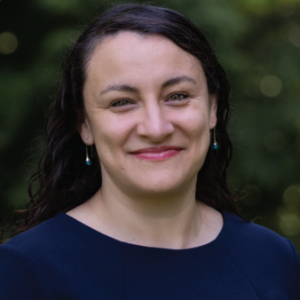 Dr. Viridiana Perez is a multidisciplinary scientist and entrepreneur. She holds a BSc (Hons) in Chemical Pharmaceutical Biology, a PhD in Chemistry from Laval University, and a Certificate in Science &Technology Commercialization (i2I) from SFU Beedie School of Business.
Dr. Viridiana Perez is a multidisciplinary scientist and entrepreneur. She holds a BSc (Hons) in Chemical Pharmaceutical Biology, a PhD in Chemistry from Laval University, and a Certificate in Science &Technology Commercialization (i2I) from SFU Beedie School of Business.
Viridiana is also the CEO and CO-Founder of NANOSentinel, a Canadian-based, women-owned science and technology startup. Viridiana’s startup has been recognized at the national scale as one of the top 3 technology solutions at Coopérathon 2020 Open Innovation Challenge. The company was also awarded 1stplace for its business plan at the Apex competition hosted by the University of New Brunswick in 2021. Her startup focuses on commercializing portable instrumentation to protect workers from exposure to toxic metal nanomaterials, a risk often overlooked in various industries.
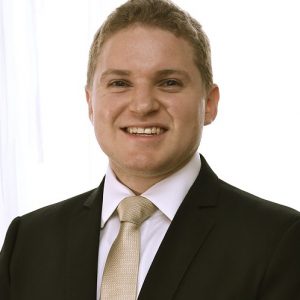 Dr. Nabil Shalabi is the founder of NANEXE – a venture that operates at the intersection of nanotechnology and medicine to solve problems that impact health and patient quality of life. Currently, Nabil is building a wireless pressure sensor enabling a new “Smart” Ureteral Stent for early detection of kidney stones. Previously, he built zero-power nano-switches for the Internet of Things and force sensors that measure single proteins interact during muscle contraction.
Dr. Nabil Shalabi is the founder of NANEXE – a venture that operates at the intersection of nanotechnology and medicine to solve problems that impact health and patient quality of life. Currently, Nabil is building a wireless pressure sensor enabling a new “Smart” Ureteral Stent for early detection of kidney stones. Previously, he built zero-power nano-switches for the Internet of Things and force sensors that measure single proteins interact during muscle contraction.
Nabil has two Postdoctoral Associate positions in nanotechnology from Cornell and UBC, a PhD from McGill, and is a recent i2I Alumni of SFU.
NMIN
Preparing Clear-language Research Summaries
NMIN Capacity-building Webinar
Wednesday, March 31, 2021
11:00 am – 12:00 pm (PST) | 2:00 – 3:00 pm (EST)
Resources are available for this webinar:
Slides | Video | Clear-language writing Checklist
Note: The slides are provided as a PDF with links from each slide to the corresponding section of the video recording.
Every scientist should be able to explain to non-specialists what they are doing in their research, why, and how.
A clear-language (“lay”) summary of your research is an important knowledge translation tool that expands the audience for your work and allows it to have an impact beyond academia.
In this webinar, Kim Wright presents practical tips and tricks for clear-language writing; outlines the sections and key content of an effective lay summary; differentiates between scientific and lay writing models; and helps you “tell the story” of your research to the general public.

Kim Wright, AllerGen Inc.
Kim Wright is Director, Communications and Knowledge Mobilization for AllerGen Inc. (a former Networks of Centres of Excellence, 2004-2020). Kim is responsible for external and internal communications materials and knowledge mobilization activities for this national research network specializing in asthma, allergies and anaphylaxis.
Kim has a B.Sc. and a degree in Professional Writing & Communications. After a career in pharmaceutical sales and marketing, she became a freelance science writer and joined AllerGen in 2013.
NMIN
Top Ten TED Talk Tips
SMRTS Capacity-building Webinar
Wednesday, March 17, 2021
11:00 am – 12:00 pm (PST) | 2:00 – 3:00 pm (EST)
In this webinar, Leah Graystone NMIN’s HQP and Events Coordinator, will explain why TED Talks are so inspiring and impactful, and offer tips on how to apply TED Talk principles to the presentation of complex research results.
Participants will gain insight into the nature and uses of summative and formative feedback, and into some of the skills and strategies that underpin the preparation and delivery of effective talks.
NMIN is pleased to host this capacity-building opportunity as a member of the SMRTS (Sharing Multi-network Resources for Trainee Success) Seminars Program, a multi-network training initiative involving 13 national and provincial networks, aimed at delivering the best possible capacity-building opportunities for their respective trainees.

Leah Graystone, NMIN
NMIN
Best practices in IP management:
Introducing NMIN’s Step-by-Step Guide
NMIN Capacity-building Webinar
Tuesday, March 9, 2021
10:30 – 11:30 am (PST) | 1:30 – 2:30 pm (EST)
Intellectual property (IP) management can be daunting, even for seasoned professionals. In this webinar, patent agent Wendy Lamson will guide you through the processes of: deciding if you are in a position to pursue a patent for your IP; determining if you have freedom to operate; and filing a patent—three fundamental components of IP management.
On the way, she will unveil three new interactive online tools developed for the NMIN website that greatly simplify IP management, which is often fraught with legal complexity—distilling it into easy-to-follow, step-by-step processes.
The first tool leads you through a series of questions in the form of a “decision tree” to help you decide whether or not to patent an invention. The second helps you assess the risk that your invention might infringe others’ patents, also known as “freedom-to-operate risk.” The third provides an interactive timeline covering each stage of the patenting process, from filing to expiry.
This webinar and the tools it introduces will help those new to IP get a leg up in carving out a niche for themselves in crowded patent landscapes, and will help those with more experience in IP management to hone their existing skills.

Wendy Lamson
Perley-Robertson, Hill & McDougall
Wendy Lamson is Partner and Patent Agent at Perley-Robertson, Hill & McDougall. She has over 20 years of experience drafting and prosecuting patent applications. Most of her career has been devoted to developing broad and defendable patent portfolios for her clients.
Wendy successfully developed and defended a patent portfolio for a 300-employee Ottawa-based biotech company, growing their portfolio from less than 10 patent applications to over 300 patent applications world-wide. Earlier in her career, she was instrumental in developing a patent portfolio directed to lipid-based formulations for Celator Pharmaceuticals, a biotech company now owned by Jazz Pharmaceuticals.
She now counsels start-ups and mid-size companies on best practices for optimizing protection of their intellectual property and reducing their IP risk exposure.
NMIN
2021 NMIN Communication Skills Development Workshop Series
Connect and Communicate
with Confidence (C3)
A series of online NMIN capacity-building workshops
- tools and tips for delivering more effective, compelling presentations;
- graphic design techniques and resources to increase the impact of visual tools; and
- an enhanced leadership and mentoring skill set.

Session 1:
INTRODUCTION & Top Ten TED Talk Tips
Thursday, January 28, 2021 11:00 am – 12:00 pm PST | 2:00 – 3:00 pm EST
This session assesses why TED Talks are so inspiring and impactful, and offers tips on how to apply TED Talk principles to the presentation of complex research results. Host: Leah Graystone, NMIN HQP & Events CoordinatorResources for this workshop, including a recording of the webinar, are available.
For access, please contact leahgraystone@nanomedicines.ca.Session 2:
FIND YOUR VOICE:
Speaking with Influence & Impact
Thursday, February 11, 2021
11:00 am – 12:30 pm PST | 2:00 – 3:30 pm EST
In this dynamic and interactive session, professional speaking coach Colleen Aynn imparts effective presentation skills, including use of voice, body language and energy to connect with an audience. Participants will gain confidence presenting in diverse settings—including academic fora, formal meetings, and social contexts.
Presenter: Colleen Aynn, On Purpose Works
Moderator: Leah Graystone, NMIN HQP & Events Coordinator
Session 3:
PRESENT WITH IMPACT:
Graphic Design & PowerPoint
Wednesday, February 24, 2021
11:00 am – 12:00 pm PST | 2:00 – 3:00 pm EST
Information designer, data scientist, artist and entrepreneur Julia Krolik discusses principles of graphic design and the use of colour, typography, and form to optimize the effectiveness of your presentations and other communication materials (posters, graphs, infographics, etc.). She also shares online tools, technologies, and other resources that support the creation of compelling visual materials.
Presenter: Julia Krolik, Pixels and Plans
Moderator: Leah Graystone, NMIN HQP & Events Coordinator
Session 4:
Bulletproof presentation preparation strategies
Thursday, March 4, 2021
11:00 am – 12:00 pm PST | 2:00 – 3:00 pm EST
This session will provide a range of strategies for preparing and delivering an effective presentation, as well as tools to strengthen the preparation process, including preparation checklists and risk mitigation exercises. Participants will become familiar with common communication pitfalls and how to avoid them.
Host: Leah Graystone, NMIN HQP & Events Coordinator
NMIN
Recent Advancements in CRISPR Reagents
NMIN Capacity-building Webinar
Tuesday, January 12, 2021
1:00 – 2:00 pm (PST) | 4:00 – 5:00 pm (EST)
Even with the use of high quality, synthetic gRNA and recombinant CRISPR proteins, it can still be challenging to generate mutant cell lines. This is especially true in difficult-to-transfect lines, primary cells and other specialized systems.
Integrated DNA Technologies (IDT) continues to innovate and develop new CRISPR reagents that help address some of the key challenges facing researchers.
In this webinar, Dr. Adam Chernick reviews new tools that: improve one’s ability to enrich for transfected cells; increase HDR rates for knock-in experiments; and provide new options for donor templates, especially for larger inserts. These new products address common stumbling blocks in most CRISPR protocols and should be beneficial to most users.
Watch the recording to learn more about these new and upcoming tools and see how they can improve your genome editing workflows.

Dr. Adam Chernick, Integrated DNA Technologies (IDT)
Dr. Chernick completed his Bachelor of Health Sciences in Biomedical Sciences and his PhD in Veterinary Medical Sciences at the University of Calgary, Canada. His doctoral research focused on the evolution of ssRNA viruses infecting cattle and relied heavily on basic molecular biology techniques as well as more novel methods including next generation sequencing.
He started at IDT as an Inside Sales Representative and Business Analyst for Canada. Today, he is a Field Application Manager at IDT for functional genomics products including CRISPR, covering the Western US and Western Canada.

NMIN
NMIN 2020 Workshop Series
Designing Effective Commercialization Plans for Grant Proposals
A series of online NMIN Capacity-Building workshops
This workshop series was designed specifically for NMIN investigators, collaborators, HQP, and Committee members to improve their ability to address commercially relevant evaluation criteria such as market size in their research planning and grant proposal writing, and to hone their skills in conducting competitive analysis. It also enables participants to understand how to design studies with endpoints relevant to potential commercial partners.
The series included four experiential workshop sessions offered over a period of seven weeks.
Participants had the opportunity to develop and receive feedback on their own research proposals and/or grant applications. This workshop aimed to optimize their skills in project design, grant writing, and attracting industry collaboration and investment. For NMIN PIs in particular, the workshop learnings will increase their chances for securing and leveraging additional resources for current NMIN projects as well as future NMIN calls for research proposals.
These workshops offer participants the skills to:
- convincingly demonstrate the commercialization potential of their research;
- clearly communicate market opportunities;
- identify clinically relevant treatment goals; and
- design pre-clinical experiments that will de-risk development and attract commercial partners.
In addition to leading the workshop sessions, Christine Charette made herself available to registrants for one-on-one consultations on a first-come, first-serve basis.

Christine Charette, Scientia Advisors Inc.
Christine Charette is an accomplished life sciences executive with over 25 years of investment, advisory, business development, capital markets, strategic planning and analysis, and marketing experience. She is an expert in translating scientific data into market potential and company strategy.
As Managing Partner and Founder of Scientia Advisors and Investments, she advised and facilitated fund raising for emerging life sciences companies. She founded the life science group at BMO Capital Markets, where she was the Managing Director of the Biotech/Pharmaceutical research group for 16 years, helping raise over $3 billion for life science companies.
She is multiple award winner, and was awarded the rare designation of “super-analyst” in recognition of her high regard by both investors and life science company management.
Christine is a founding member of NMIN’s Board of Directors and is the designated Board Observer on the NMIN Research Management Committee.
Session 1
DEVELOPING A TARGET PRODUCT PROFILE (TPP)
Wednesday, October 21, 2020, 4:00 pm ET
60-minute workshop, 30-minute discussion (optional)Following this workshop, participants will have the resources and tools needed to assess current and potential future standard of care and determine the attributes needed for a new product to be competitive within that context. Following the workshop, participants will be able to design a commercially relevant TPP.
Session 2
DESIGNING A PROOF OF CONCEPT (POC) STUDY
Tuesday, November 3, 2020, 4:00 pm ET
60-minute workshop, 30-minute discussion (optional)
Participants will learn how to use the TPP discussed in the first workshop to “work backwards” and determine what POC experiment will be needed to convince potential commercial partners that their new product will be competitive. They will learn the elements needed to design an appropriate go/no go experiment based on elements of a TPP and what data is needed to validate an idea.
Session 3
ASSESSING MARKET SIZE
Tuesday, November 24, 2020, 4:00 pm ET
60-minute workshop, 30-minute discussion (optional)
The lung cancer market may be a $10 billion market, but a new product will not necessarily achieve those sales levels. Credibility with potential investors will go a long way if your market assessment is reasonable and you have a well-articulated value proposition. This workshop will provide participants with resources and help them to critically assess achievable potential sales based on the TPP and competitive positioning.
Session 4
ASSESSING PARTICIPANT PROJECTS AND Q&A
Tuesday, December 8, 2020, 4:00 pm ET
60-minute workshop, 30-minute discussion (optional)
The final session will involve participants assessing written projects presented by fellow investigators following the three previous workshops with input from Scientia Advisors, followed by a Q&A “ask me anything” session. This workshop will provide participants with an opportunity to bring learnings from across the series together and improve their ability to articulate the commercial relevance of their projects.
NMIN
rhAmpSeq™ CRISPR: Multiplexed Amplicon Sequencing & Analysis
NMIN Capacity-building Webinar
Monday, November 16, 2020
1:00 – 2:00 pm (PST) | 4:00 – 5:00 pm (EST)
CRISPR-Cas9 allows for the rapid and specific editing of genomic DNA but sequencing and quantifying those edits can be challenging and time consuming. There is also a risk of off-target editing that can have undefined consequences. Utilizing robust guide design tools, delivering ribonucleoprotein (RNP) complexes instead of plasmids and the use of high fidelity Cas9 enzymes can reduce this risk it is still important to check for off-target edits.
In this seminar, organized with Integrated DNA Technologies (IDT), Dr. Adam Chernick presented rhAmpSeq™ for CRISPR as a tool for generating NGS-ready libraries targeting both on- and off-target sites in a genome. This tool can be coupled to an upcoming analysis pipeline to robustly analyze the resulting NGS data to determine the sequence and frequency of edits at these sites.
Watch the recording below to learn more about best practices for characterizing on- and off-target editing in your CRISPR experiments.

Adam Chernick, Integrated DNA Technologies (IDT)
Adam Chernick completed his Bachelor of Health Sciences in Biomedical Sciences and his PhD in Veterinary Medical Sciences at the University of Calgary, Canada. His doctoral research focused on the evolution of ssRNA viruses infecting cattle and relied heavily on basic molecular biology techniques as well as more novel methods including next generation sequencing.
He started at IDT as an Inside Sales Representative and Business Analyst for Canada. Today, he is a Field Application Manager at IDT for functional genomics products including CRISPR, covering the Western US and Western Canada.

NMIN
Mitacs Internship & Fellowship Opportunities
An NMIN Capacity-Building HQP webinar
Wednesday, October 14, 2020
1:30 – 2:30 pm (EDT) | 10:30 – 11:30 am (PDT)
NMIN-Mitacs Internships enable an internship opportunity for NMIN HQP who wish to work with non-academic partner organizations on research projects that involve nanomedicine. Through partnership with Mitacs, 430 internship units (valued at approximately $6.5 Million) have been made available for NMIN HQP.
In the Mitacs Internship and Fellowship Opportunities webinar, Dr. Sherry Zhao discussed to the Mitacs Accelerate Program and the Mitacs Elevate Postdoctoral Fellowship program, and how NMIN HQP can access and benefit from these opportunities.
The Mitacs Accelerate Program provides paid internships for graduate students and trainees at industry partner organizations. This program supports trainees and graduate students to apply their skills in non-academic environments, broaden professional networks, and build their CVs.
Mitacs Elevate is a postdoctoral fellowship with a customized research management training component. Elevate fellows progress through the program in a cohort, giving them cross-disciplinary networking and peer-learning opportunities they might not otherwise have access to in their careers.

Sherry Zhao, Mitacs
Dr. Sherry Zhao, PhD, joined the Mitacs Business Development team in 2014. As the Senior Account Manager, she works with major industry partners to support their innovation pipeline.
A first-generation immigrant, she believes in the power of diversity and globalization. She serves on the UBC China Council, & as a steering committee member for NEXT leaders initiative at Business Council of British Columbia. She also has a strong passion for lifestyle wellness, particularly in educating and empowering women in such endeavors.
Dr. Zhao previously worked at Genentech, a member of Roche, supporting the technology development for biopharmaceutical characterizations. She also led the largest site in Canada for Let’s Talk Science, a national STEM outreach organization, as the Executive Coordinator
NMIN
Navigating Intellectual Property (IP) Risk
An NMIN Capacity-Building HQP webinar
Thursday, June 25, 2020
3:00 – 4:30 pm (EST) | 12:00 – 1:30 pm (PST)
Have a great idea for a life sciences start-up?
Have you checked if there are any blocking patents? Have you checked to see if someone already has rights to your planned brand?
If your answer is “no,” you are not alone. In fact, few scientists launching life sciences start-ups have the knowledge or the tools to effectively manage and navigate intellectual property (IP) risk. Rarely are these skills taught as part of university science curricula.
In this webinar, patent/IP and trademark experts Wendy Lamson and Coleen Morrison distilled this topic down to an easy-to-understand synthesis and provided practical tips and tricks on how to manage IP risk throughout product development to mitigate future infringement.
Participants left the webinar equipped with practical solutions that they can implement in their organizations now, or in future start-ups.
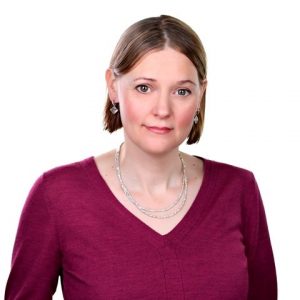 Wendy Lamson is Partner and Patent Agent at Perley-Robertson, Hill & McDougall. She has over 20 years of experience drafting and prosecuting patent applications. Most of her career has been devoted to developing broad and defendable patent portfolios for her clients.
Wendy successfully developed and defended a patent portfolio for a 300-employee Ottawa-based biotech company, growing their portfolio from less than 10 patent applications to over 300 patent applications world-wide. Earlier in her career, she was instrumental in developing a patent portfolio directed to lipid-based formulations for Celator Pharmaceuticals, a biotech company now owned by Jazz Pharmaceuticals.
She now counsels start-ups and mid-size companies on best practices for optimizing protection of their intellectual property and reducing their IP risk exposure.
Wendy Lamson is Partner and Patent Agent at Perley-Robertson, Hill & McDougall. She has over 20 years of experience drafting and prosecuting patent applications. Most of her career has been devoted to developing broad and defendable patent portfolios for her clients.
Wendy successfully developed and defended a patent portfolio for a 300-employee Ottawa-based biotech company, growing their portfolio from less than 10 patent applications to over 300 patent applications world-wide. Earlier in her career, she was instrumental in developing a patent portfolio directed to lipid-based formulations for Celator Pharmaceuticals, a biotech company now owned by Jazz Pharmaceuticals.
She now counsels start-ups and mid-size companies on best practices for optimizing protection of their intellectual property and reducing their IP risk exposure.  Coleen Morrison is Partner, Barrister & Solicitor Trademark Attorney, at Perley-Robertson, Hill & McDougall. She has over 20 years of experience representing clients spanning all areas of trademark practice, along with other areas of IP such as copyright, industrial designs and domain names.
Coleen Morrison is Partner, Barrister & Solicitor Trademark Attorney, at Perley-Robertson, Hill & McDougall. She has over 20 years of experience representing clients spanning all areas of trademark practice, along with other areas of IP such as copyright, industrial designs and domain names.
Coleen has filed and prosecuted more than 5000 trademark applications in Canada and has been involved in well over 1000 trademark Oppositions. She also has extensive experience providing strategic advice to Canadian small and medium enterprises wishing to protect their IP in Canada and around the world.
Coleen is the current President of the Canadian Association of the International Federation of Intellectual Property Attorneys (FICPI) and the President of FICPI’s Work and Study Commission (CET). She is a fellow of the Intellectual Property Institute of Canada and vice-Chair of this organization’s Trademark group.
NMIN
Developing an Entrepreneurial Mindset
An NMIN Capacity-Building HQP webinar
Tuesday, February 18, 2020
2:00 – 3:00 pm (EST)
This webinar is designed to introduce STEM graduate students, post-doctoral fellows and faculty to some of the frameworks and skills required to commercialize their inventions.
Dr. Elicia Maine, a specialist in technological innovation and science entrepreneurship, will discuss the challenges involved in pursuing science-based business ventures and translating university inventions into innovation.
Dr. Maine will outline three potential paths by which to take breakthrough inventions from lab to market, and offer insights into the entrepreneurial capabilities that can be employed before a science-based venture is even founded to enhance the likelihood of success.
The event will also provide an introduction to the Invention to Innovation (i2I) entrepreneurship program, a program at Simon Fraser University that helps scientists and engineers commercialize their inventions and overcome marketplace challenges. In a panel discussion, i2I alumni will discuss the value they derived from the program and their experiences in applying these learnings to the real world of scientific entrepreneurialism.

Elicia Maine is the W.J. VanDusen Professor of Innovation & Entrepreneurship at the Beedie School of Business at Simon Fraser University, where she teaches “Managing Technological Innovation” and “Lab to Market.” She is also Academic Director of SFU’s Invention to Innovation (i2I) Program. Her research interests are in technological innovation and science & technology entrepreneurship.
Dr. Maine was the founding educational coordinator for New Ventures BC, was awarded the 2017 TD/Canada Trust Distinguished Teaching Award, and was recognized as one of BC’s Most Influential Women 2018: STEM Stars. She serves on the Boards of Directors of the Foresight Cleantech Accelerator, the Composites Knowledge Network and Innovate BC’s New Ventures BC, and is actively involved in innovation initiatives and in mentoring scientist-entrepreneurs.
An interdisciplinary scholar and engaged educator, she holds a PhD in Technology Management & Materials Engineering from the University of Cambridge, Master’s degrees in Technology & Policy and Materials Engineering from the Massachusetts Institute of Technology, and a BSc in Materials Engineering from Queen’s University. Dr. Maine has published her innovation management research in Research Policy, R&D Management, Research-Technology Management, Technovation, Journal of Engineering and Technology Management, Nature Nanotechnology and Nature Materials.
Invention to Innovation (i2I) Alumni Panel

Jayesh Kulkarni, PhD.
Scientist, Evonik
Jayesh “Jay" Kulkarni is currently a Scientist at Evonik Canada Inc. focused on the development of lipid nanoparticles for gene therapy. He completed his PhD in Biochemistry and Molecular Biology from UBC in 2018 under the supervision of Dr. Pieter Cullis; his work focused on the characterization of lipid nanoparticle formulations of nucleic acid. Jay was part of the 2018 cohort of students in the i2I program which helped him convert a basic scientific finding into an innovative approach to enabling nucleic acid delivery. He has co-founded a company developing gene editing therapeutics for neurological diseases.

Ada Leung, PhD.
Director of Operations & Co-Founder, Cuprous Pharmaceuticals Inc.
Dr. Ada Leung completed her PhD at the University of British Columbia (BC Cancer) where she focused on identifying novel genes and proteins that could be targeted to improve chemotherapy treatment outcomes for lung cancer. During her PhD, Dr. Leung undertook a side project which contributed to the development of the Metaplex technology and the founding of Cuprous Pharmaceuticals. As a scientist-entrepreneur, Dr. Leung manages Cuprous’ research programs and business operations and actively participates in entrepreneurship training through UBC Hatch and SFU Beedie School of Business. She recently enrolled in the first online cohort of the SFU/Mitacs joint Invention to Innovation (i2I) program.

Bahar Motlagh, PhD.
Manager, Device Development Lab (DDL), Sunnybrook Health Sciences Centre
Bahar Motlagh has a PhD in Biomedical Engineering from Polytechnique Montreal with focus on design and fabrication of micro/nano size medical devices. She worked as an entrepreneur/ project leader in TandemLaunch Inc. in Montreal before taking part in the i2I program at SFU. She was the First Place Finisher in the emergent/social venture category in the 2017 Venture Pitch Competition at SFU Beedie School of Business. She is now working in Sunnybrook Health Sciences Centre as a manager of Device Development Lab(DDL).
Questions: contact Leah Graystone, NMIN Events & HQP Program Coordinator, at: leahgraystone@nanomedicines.ca
NMIN
Innovation Playbook for Academic Entrepreneurs
NMIN Capacity-building Webinar
Tuesday, February 21, 2022
10:00 – 11:00 am (PST) | 1:00 – 2:00 pm (EST)
This session familiarizes the viewer with the entrepreneurship journey, by which one brings meaningful scientific discoveries to patients and partners. The presenter shares relevant real-world case studies and personal insights.
Organized in collaboration with entrepreneurship@UBC

Jonathon Jafari
Jonathon Jafari has over 20 years’ experience in biotech strategic marketing, business development and venture creation. He played a prominent role in the creation and launch of multiple startups including Abdera, Kairos (Zymeworks), Sepset, and Zucara while at adMare Bioinnovations. He has worked in business development and strategic marketing at early-stage startups, publicly traded biotech companies (QLT inc) as well as multi-national pharmaceutical companies including Novartis and Eli Lilly Inc. He is the co-founder and Chief Business Officer of Mesintel Therapeutics, a UBC spin-out. Jonathon has a BSC and MBA from Indiana University and a MSC in Biotechnology from Johns Hopkins University.
